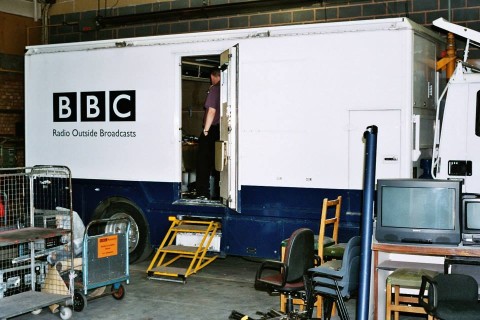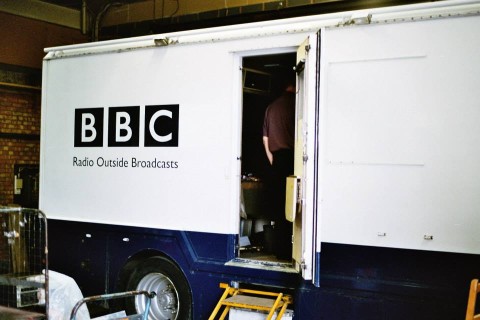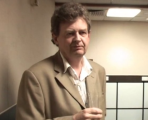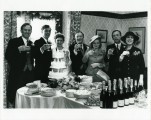Royal Holloway, part of the University of London, held a conference from 23-25 April, 2015, entitled: Television Drama: the Forgotten, the Lost and the Neglected. The conference brought together academics and former programme makers, and several of the sessions had a relevance to BBC Pebble Mill.
The final session of the conference was an interview with producer Terrance Dicks by academic, Billy Smart. Dicks is well known for his work on Dr Who, but here he was talking about his role on the Classic Serial 1981-8, first as a script editor, and then as producer. The Classic Serial went out on BBC1 on a Sunday afternoon, and was designed to be family viewing. It was part of the Series and Serials department, and always involved the adaptation of a classic novel, Dickens being a favourite author. It was an expensive strand to produce because of all the design costs. Dicks pointed out the similarities between Dr Who and The Classic Serial, in that both are a series of serials.
Great Expectations, BBC1,1981, was an early production when Terrance Dicks was a script editor. The novel was adapted for television by James Andrew Hall and was a significant success. Dicks described the role of the script editor as planning the production with the producer, choosing the writer and talking through the show with them, followed by liaising with the writer and making sure that the scripts were in on time.

Jane Eyre, photo by Neil Wigley, no reproduction without permission
Another notable production was Charlotte Bronte’s, Jane Eyre, BBC1,1983, adapted by Alexander Baron, with Timothy Dalton as Rochester. This drama, like many other Classic Serials, was recorded at BBC Pebble Mill, as a hosted London production. I asked Terrance about why Birmingham studios were chosen. He replied that London crews behaved like they were doing you a favour in working on your shows, whereas Birmingham managers were much more supportive, and the crews were more co-operative and grateful – if not quite as good! I’m sure that the crews in Birmingham would dispute his judgement that they weren’t as skilled, whilst being pleased that they were considered better to work with!
The Invisible Man, BBC1, 1984, was a significant 6 part serial, which had to have an evening transmission due to its inherent violence. After this production, Dicks became a producer, which he described as doing proper grown up work, something which he’d tried to avoid all his life!

Oliver Twist, photo by Neil Wigley, no reproduction without permission

Vanity Fair, photo by Neil Wigley, no reproduction without permission
Two further serials were discussed, both of which were recorded in Studio A at Pebble Mill: Oliver Twist, BBC1, 1985, and Vanity Fair, BBC1,1987. Oliver Twist was a fantastic success, and the viewing figures were so good that they enabled Jonathan Powell (then Head of Series and Serials) to convince Michael Grade (Controller BBC1,1984-6), not to cancel The Classic Serial. Vanity Fair, was a less successful production, being in Dick’s opinion too big and expensive a production, with problems with viewer engagement, due to the ambiguity of Becky Sharp’s character
Drama on television has certainly developed as a genre since the 1970s and ‘80s, and in the main 30’ series, like The Classic Serial, are no longer made, although adaptations of classic novels are still made, albeit in longer format.
Vanessa Jackson
The following comments were left on the Pebble Mill Facebook page:
Terry Powell: ‘I worked on both productions. And worked at TVC London let me say we were streets ahead in professional and talent and. Attitude xxx’
Anne-Marie Palmer: ‘Some of us worked for BBC London before moving to BBC Birmingham, and visa versa, where does that place us?’
Jean Palmer: ‘If they weren’t good why did they keep coming back.’
Kevin Hudson: ‘We were every bit as good. Real reason we were cheaper!!!’
Keith Brook (Scouse): ‘They were much better than the London crews who used bullshit and fancy accents to cover up their failings.’







